Create Montana Court of Chancery
A Chancery Court is a specialized court. Under this proposal, the Chancery Court would have superseding jurisdiction over district courts. It would include three judges, appointed by the governor, who would serve 6-year terms.
Montanans would pay over $2.7 million in the first year, and over $1.2 million each year thereafter to create this court.
Sponsor: Senator Tom McGillvray (R-Billings)
This is a Senate Select Committee on Judicial Oversight and Reform requested bill.
What is a Chancery Court?
The proposed Chancery Court in Montana seeks to create a specialized judicial body to handle cases involving business disputes of more than $80,000, non-local land use issues, and constitutional challenges, among others. The court would have governor-appointed judges.
See Text of Senate Bill 52 Here
What’s the cost to Montana?
The fiscal note, created by the Governor’s Office of Budget and Program Planning, highlights the following:
- The first year, to implement, would cost Montanans $2,776,123. Each year thereafter would average an annual $1,222,287 to operate.
- The Chancery Court would include 8.0 FTE.
- The Governor’s operating budget will fund the expenses for the Chancery Court.
- There are local government impacts that aren’t accounted for in the State costs. The Clerk ofCourt would be a local government employee and would need to be paid for by the local governments where the Courts are located inBillings, Great Falls, and Missoula.
A Chancery Court may be considered unnecessary and inefficient
- The creation of the Chancery Court includes judicial salaries that are 20% more than Montana Supreme Court justices.
- The Court requires significant state funding for new salaries, infrastructure, and administrative costs. In its final Workload Assessment Study of District Court Judicial Officers (2022), the National Center for State Court reported that to meet 2021 calendar year filings, Montana District Courts needed 11.55 additional judges and a total of 64.8 judicial officers.
- The Chancery Court duplicates the functions of Montana’s District Courts. The expense of creating a new court is redundant and wasteful.
- Centralizing court operations in Helena with hearings in select cities (Billings, Missoula, Great Falls) will incur recurring travel, facilities, and staffing costs.
- The Court has an uncertain return on investment. The Court’s effectiveness in delivering justice more efficiently remains unproven and poses a risk of wasting resources with no tangible benefit for Montana taxpayers.
What other issues does Senate Bill 52 raise?
1. Jurisdiction Stripping
The Chancery Courts bill attempts to remove original jurisdiction from District Courts, contradicting Article VII, §4 of the Montana Constitution, which grants District Courts
“original jurisdiction in all civil matters and cases at law and in equity.”
2. Unconstitutional Jurisdiction Reassignment
The Montana Constitution directly vests original jurisdiction in District Courts, meaning it cannot be reassigned by legislative action without a constitutional amendment.
3. Separation of Powers at Risk
By allowing the executive branch to control judicial appointments and salaries, the bill infringes upon the judiciary’s independence, violating the constitutional separation of powers.
4. Montana’s Constitution Does Not Allow for This Court
Article VII, §1 permits the legislature to create “other courts,” but Constitutional Convention transcripts suggest this was intended to allow for intermediate appellate courts, not to strip District Courts of their constitutionally vested jurisdiction.
5. Chancery Court Model Lacks a Constitutional Basis in Montana
Unlike Wyoming or North Carolina, Montana’s constitution does not allow for the legislature to vest District Court jurisdiction in other courts. Other states with specialized courts operate under constitutional provisions that Montana lacks.
6. Excessive Power and Broad Jurisdiction
The proposed court would oversee cases involving constitutional challenges, business disputes, and land use, removing a significant portion of District Court jurisdiction without proper constitutional backing.
7. Unnecessary Overhaul of a Functioning System:
- The Court undermines the justice system’s impartiality by appointing judges who are chosen and paid by the executive branch, injecting partisanship and eroding judicial independence.
- The proposed Court introduces unnecessary complexity by creating a parallel judicial system that duplicates existing District Court functions, leading to inefficiencies and confusion for litigants.
- It violates foundational principles of Montana’s legal framework by stripping constitutionally vested jurisdiction from District Courts, bypassing elected judges, which are core to the state’s commitment to fair and impartial justice.
